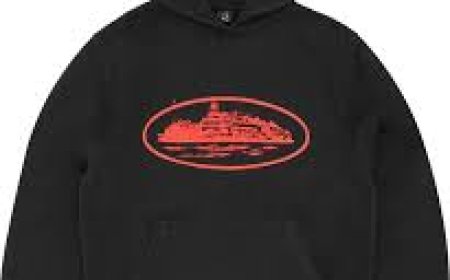Cracking Guesstimates: Techniques for Accurate Estimation and Problem Solving
Master guesstimates with proven techniques for accurate estimation and problem-solving in business and analytical scenarios.

In interviews and business scenarios, guesstimates are often used to assess a candidate's ability to solve complex problems using logical reasoning and estimation techniques. If you're preparing for consulting interviews or any role that involves problem-solving, understanding how to approach guesstimate questions is essential. Here's a breakdown of guesstimate questions, how to solve them, and some guesstimate examples to help you crack those tricky problems.
What is a Guesstimate?
A guesstimate is a quick, logical estimate that helps solve problems when exact data is unavailable or hard to obtain. It involves using assumptions, approximations, and simplified reasoning to arrive at a reasonable answer. Guesstimates are common in consulting interviews, particularly in industries like management consulting, where problem-solving and quantitative skills are critical.
For example, you might be asked: "How many gas stations are there in the United States?" This is a guesstimate question where you’ll need to rely on assumptions and your ability to estimate large numbers.
Steps to Solve Guesstimate Questions
-
Clarify the Problem Before diving into calculations, always clarify the problem. If a guesstimate interview question is ambiguous, asking for clarification shows you're thinking critically. For example, if asked, “How many piano tuners are there in New York City?”, clarify if they mean only residential tuners or both residential and commercial.
-
Break the Problem Into Smaller Parts Many common guesstimate questions can be simplified by breaking them into manageable sub-problems. For instance, if you are estimating the number of people who take the subway in New York City:
-
Estimate the population of NYC.
-
Estimate the percentage of people who use the subway daily.
-
Multiply those numbers to arrive at your answer.
-
Make Reasonable Assumptions The beauty of guesstimate questions and answers lies in making logical assumptions. For example, if asked, "How many sheets of paper are used in a year by a small company?", you can assume the number of employees and average sheets used per employee per day, and then multiply by the number of working days in a year.
-
Use Rounding to Simplify Calculations When solving guesstimate questions, rounding numbers can simplify your math and speed up your thought process. For example, rather than using 1,763, round to 1,800 or 2,000, which makes estimation easier without sacrificing too much accuracy.
-
Cross-check for Reasonableness After calculating your guesstimate, check whether your answer makes sense. For example, if you're estimating the market size for a product, and your answer is $1 trillion, but you know the industry is much smaller, your estimate is likely too high.
Example Guesstimate Questions with Solutions
Let’s go over some guesstimate examples to see how these techniques work:
1. How many golf balls can fit into a school bus?
-
Step 1: Estimate the size of a school bus. Assume it's 30 feet long, 8 feet wide, and 6 feet tall.
-
Step 2: Calculate the volume of the bus:
30 ft×8 ft×6 ft=1,440 cubic feet30 \, \text{ft} \times 8 \, \text{ft} \times 6 \, \text{ft} = 1,440 \, \text{cubic feet}30ft×8ft×6ft=1,440cubic feet. -
Step 3: Estimate the size of a golf ball: Assume a diameter of 1.68 inches (or 0.14 feet).
-
Step 4: Calculate the volume of a golf ball using the formula for the volume of a sphere:
V=43πr3V = \frac{4}{3} \pi r^3V=34πr3, where r=0.07 ftr = 0.07 \, \text{ft}r=0.07ft, so the volume is approximately 0.0014 cubic feet. -
Step 5: Divide the volume of the bus by the volume of one golf ball:
1,4400.0014≈1,028,571 golf balls\frac{1,440}{0.0014} \approx 1,028,571 \, \text{golf balls}0.00141,440≈1,028,571golf balls.
Thus, around 1 million golf balls can fit into a school bus.
2. How many piano tuners are there in New York City?
-
Step 1: Estimate the population of NYC — let’s say it’s about 8 million.
-
Step 2: Assume that 1 in 1,000 people owns a piano. So, 8,000,000÷1,000=8,000,000,000 \div 1,000 = 8,000,000,000÷1,000=8,000 pianos in NYC.
-
Step 3: Assume each piano needs tuning once a year. If a piano tuner can tune 1 piano per day and works 250 days a year, they can tune 250 pianos annually.
-
Step 4: Divide the total number of pianos by the number of pianos one tuner can handle:
8,000÷250=328,000 \div 250 = 328,000÷250=32.
So, there are approximately 32 piano tuners in New York City.
Common Guesstimate Questions
Here are a few common guesstimate questions that may come up in interviews:
-
How many cups of coffee are consumed in the United States daily?
-
How many liters of water are used in a large city every day?
-
How many tennis balls would fit into a swimming pool?
Tips for Solving Guesstimate Questions
-
Practice with Different Scenarios: Practice answering various guesstimate questions for interviews, such as estimating market sizes, product usage, or resource consumption. The more diverse your practice, the better.
-
Think Aloud: If you're solving guesstimate interview questions, thinking aloud will show the interviewer your reasoning process and how you approach problem-solving, even if you're not 100% accurate.
-
Use Logical Assumptions: Don't worry about getting the answer exactly right — the goal is to show your ability to make reasonable assumptions and break down complex problems.
Conclusion
Guesstimates are about making quick, logical estimates in the absence of exact data. By breaking down the problem, making reasonable assumptions, and using simple math, you can effectively solve guesstimate questions and impress your interviewers. With practice, you’ll be able to tackle even the most challenging guesstimate questions and solutions with confidence!
What's Your Reaction?



















